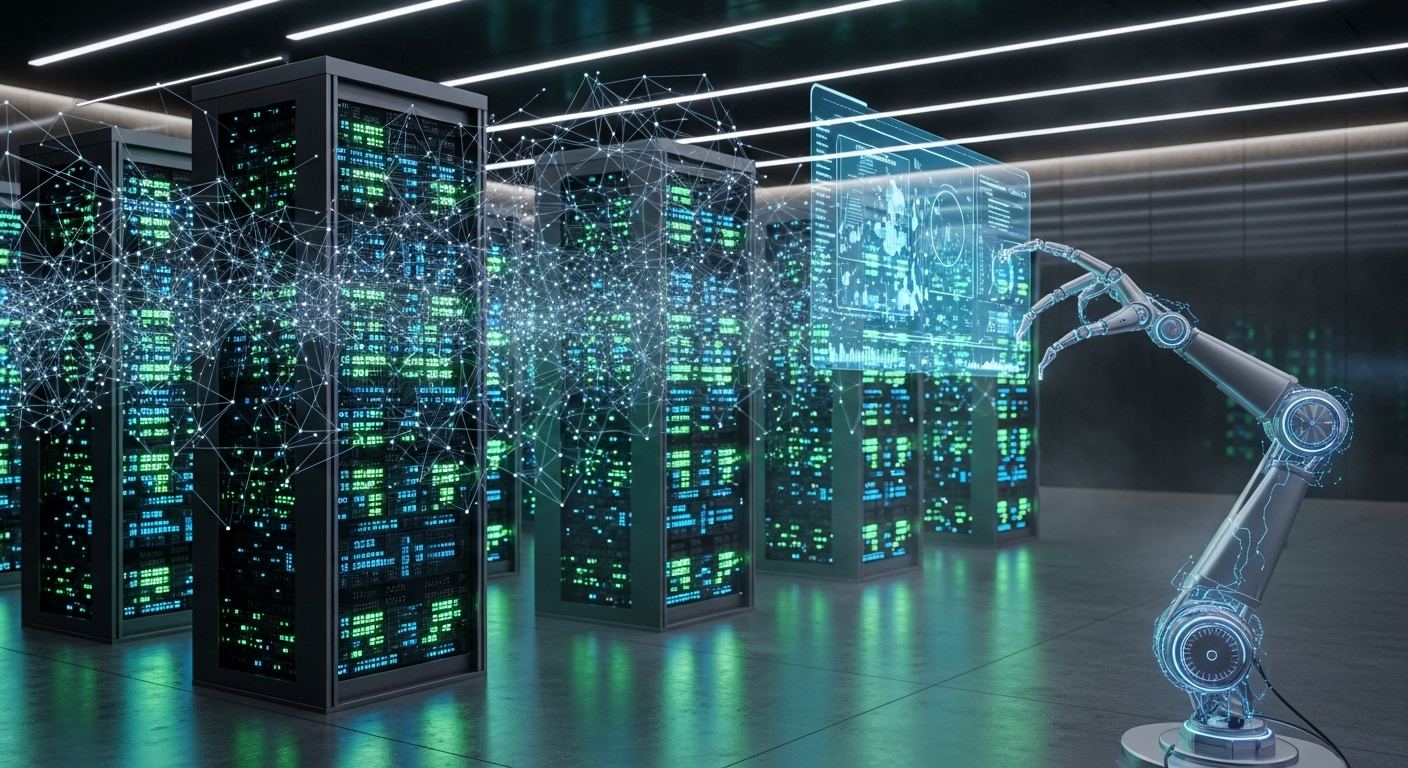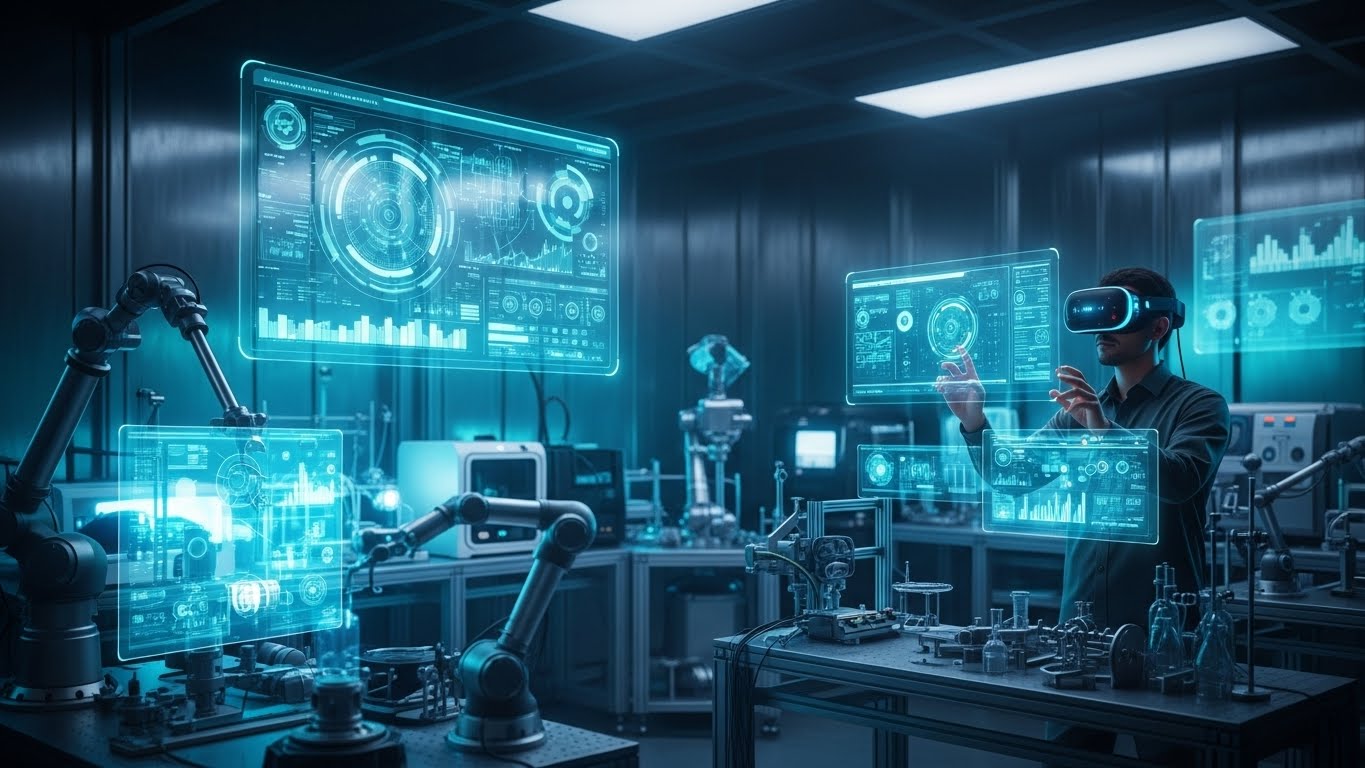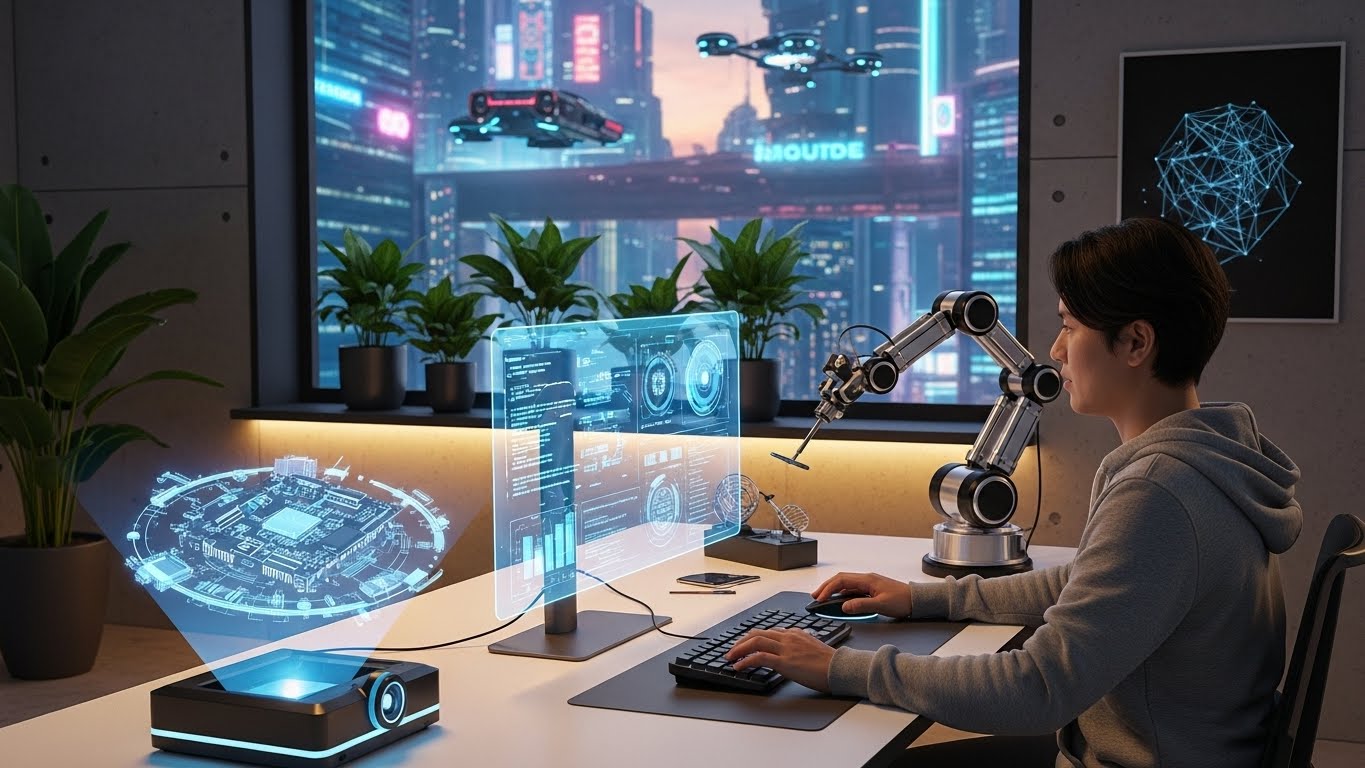Technology has always been a driving force behind human progress, but in recent years, it has grown at an unprecedented rate. From the smartphones in our pockets to artificial intelligence systems that are already reshaping entire industries, technological advancements are transforming every facet of our lives. The question isn’t just what technology is capable of today, but what it will be capable of tomorrow.
In this blog post, we will explore the groundbreaking innovations that are poised to define the future. We’ll take a closer look at how emerging technologies such as artificial intelligence (AI), quantum computing, 5G connectivity, blockchain, and biotechnology are expected to revolutionize various sectors, from healthcare and entertainment to finance and communication.
We’ll also discuss the challenges these technologies face and how they might reshape society in ways we are only beginning to understand. With all of these advancements, the future of technology is bound to be transformative, but will it be for the better?
The Rise of Artificial Intelligence: A Glimpse into a Smarter Future
Artificial intelligence has moved from science fiction to everyday reality. From voice assistants like Siri and Alexa to sophisticated AI algorithms that power everything from online shopping recommendations to self-driving cars, AI is now ingrained in our daily lives. But what does the future hold for AI, and how will it shape the world?
Machine Learning and Deep Learning: The Foundations of Modern AI
At the heart of modern artificial intelligence is a subfield called machine learning (ML), which allows computers to learn from data without being explicitly programmed. Deep learning, a subset of machine learning, uses neural networks to model complex patterns in large datasets. This technology is already behind innovations like facial recognition, speech recognition, and even predictive healthcare diagnostics.
As these technologies improve, AI will become more intelligent and capable of performing tasks that were previously thought to be the domain of humans alone. For example, AI can now write articles, compose music, and create art, raising questions about the nature of creativity and whether machines can truly be “creative.”
Autonomous Systems and AI in Transportation
One of the most anticipated applications of AI is in the field of transportation. Autonomous vehicles, powered by AI, are expected to revolutionize the way we travel. Self-driving cars have the potential to reduce traffic accidents, increase road safety, and transform the logistics industry by enabling faster, more efficient deliveries.
While fully autonomous vehicles are still in the testing phase, the technology behind them is rapidly advancing. Companies like Tesla, Waymo, and Uber are making significant strides, with self-driving cars already on public roads in some areas. However, legal, regulatory, and ethical hurdles remain, and questions about job displacement in the transportation sector persist.
AI in Healthcare: Revolutionizing Diagnostics and Treatment
AI’s impact on healthcare is already profound and will only grow in the coming years. Machine learning algorithms are now capable of analyzing medical images, diagnosing diseases, and even predicting patient outcomes with remarkable accuracy. AI-powered tools are helping doctors identify conditions such as cancer, heart disease, and neurological disorders earlier than ever before.
Moreover, AI has the potential to accelerate drug discovery, making it possible to develop new medications more efficiently. It’s not far-fetched to imagine a future where AI-driven healthcare systems provide personalized treatment plans tailored to an individual’s genetic makeup, lifestyle, and medical history, all at the click of a button.
Quantum Computing: The Next Frontier in Computing Power
While classical computers rely on binary code—using 0s and 1s to represent data—quantum computers take advantage of the principles of quantum mechanics to store and process information in a fundamentally different way. Quantum bits, or qubits, can exist in multiple states simultaneously, thanks to a phenomenon called superposition. This allows quantum computers to process vast amounts of data at exponentially faster speeds than traditional computers.
The Potential of Quantum Computing
The implications of quantum computing are enormous. In theory, quantum computers could solve problems that are currently unsolvable by classical computers. For example, quantum computing could revolutionize fields like cryptography, materials science, and complex modeling simulations.
In cryptography, quantum computers have the potential to break current encryption methods, which rely on the difficulty of factoring large numbers. This would create a new arms race in the development of quantum-resistant encryption methods. On the other hand, quantum computing could vastly improve data security and make transactions more secure in the digital world.
Quantum computing could also drive advances in industries like drug discovery, climate modeling, and financial modeling by enabling researchers to simulate complex systems at a level of precision that classical computers cannot achieve.
Challenges and the Road Ahead
Despite the potential, quantum computing faces significant challenges. Quantum computers are extremely sensitive to environmental factors, requiring extremely low temperatures to function properly. They also face issues related to error correction, as qubits are prone to decoherence and errors. Companies like IBM, Google, and Microsoft are actively working on overcoming these hurdles, but it may take years before quantum computing becomes widely accessible.
5G and Beyond: The Evolution of Connectivity
The arrival of 5G (the fifth generation of mobile network technology) has already begun to change how we connect and communicate. 5G promises to offer faster speeds, lower latency, and more reliable connectivity than its predecessor, 4G. But what’s even more exciting is what 5G will enable in terms of new technologies.
The Promise of Ultra-Fast Connectivity
With 5G, download speeds could reach up to 10 gigabits per second, which is 100 times faster than 4G. This speed allows for real-time, high-quality streaming of video content, such as 4K and 8K resolution, with virtually no buffering. The increased bandwidth also enables the simultaneous connection of billions of devices, paving the way for the Internet of Things (IoT).
For industries such as autonomous vehicles, smart cities, and remote healthcare, the low latency of 5G is essential. In these scenarios, milliseconds matter—whether it’s an autonomous car reacting to a hazard in real-time or a remote surgeon performing a complex procedure with robotic assistance.
IoT and Smart Cities
As 5G networks become more widespread, we will see an explosion in the number of connected devices in our daily lives. Smart homes, wearables, and industrial IoT applications will all benefit from the faster, more reliable network 5G provides.
In smart cities, 5G can support connected traffic systems, reducing congestion and improving public safety. It will also allow for more efficient energy management, waste management, and urban planning, creating cities that are more sustainable and livable.
The Transition to 6G and Beyond
While 5G is still in its rollout phase, experts are already looking ahead to 6G, which is expected to further improve upon the speed and capabilities of 5G. With 6G, we may see the development of terabit-per-second speeds and even more advanced applications in fields like augmented reality (AR), virtual reality (VR), and holographic communications.
Blockchain Technology: Revolutionizing Trust and Transparency
Blockchain is a distributed ledger technology that promises to transform industries by offering a decentralized and transparent way to record transactions and store data. Originally developed as the underlying technology for cryptocurrencies like Bitcoin, blockchain is now being explored for a wide range of applications across various sectors.
Beyond Cryptocurrencies: The Use Cases of Blockchain
Blockchain’s decentralized nature makes it an ideal solution for ensuring transparency and reducing fraud in fields like finance, healthcare, and supply chain management. In finance, blockchain enables secure, peer-to-peer transactions without the need for intermediaries like banks. This has the potential to lower costs, increase speed, and provide greater access to financial services for underserved populations.
In healthcare, blockchain can be used to securely store patient data and make it easily accessible to authorized parties, ensuring privacy and reducing the risk of data breaches. Additionally, blockchain can improve supply chain transparency by tracking the provenance of products, ensuring that items like food and medicine are sourced ethically and safely.
The Future of Decentralized Applications
Blockchain’s potential goes beyond transactions and data storage—it is also enabling the development of decentralized applications (dApps). These applications run on decentralized networks, ensuring that users have more control over their data and interactions. This shift towards decentralization is poised to disrupt everything from social media platforms to gaming economies.
Biotechnology: The Intersection of Technology and Medicine
Biotechnology is another field that is set to experience tremendous growth, thanks to advances in genetics, CRISPR technology, and artificial intelligence. Biotechnology has the potential to radically change healthcare by enabling us to not only treat diseases but also prevent them.
CRISPR and Gene Editing
CRISPR-Cas9, a gene-editing technology, has revolutionized biology by allowing scientists to precisely alter DNA at specific locations. This technology holds the promise of curing genetic diseases, creating genetically modified organisms (GMOs) for agriculture, and even potentially extending human life by eradicating inherited conditions.
While the potential benefits of CRISPR are enormous, there are ethical considerations surrounding its use, particularly in humans. The ability to “edit” the human genome raises questions about unintended consequences, gene patents, and the possibility of creating genetic inequality.
Personalized Medicine and AI
AI and machine learning are also making significant contributions to biotechnology. By analyzing vast amounts of genetic and medical data, AI can help doctors design personalized treatment plans for patients, ensuring that they receive the most effective care based on their unique genetic makeup.
Additionally, AI is speeding up drug discovery, allowing researchers to identify promising compounds more quickly and efficiently. This could result in the faster development of treatments for diseases that currently have no cure, such as certain cancers, Alzheimer’s, and rare genetic disorders.
Conclusion: A Technologically Transformed Future
The future of technology is nothing short of awe-inspiring. From AI that can think and learn to quantum computers that will solve problems beyond our imagination, the possibilities are endless. However, with these advances come new challenges—ethical concerns, privacy issues, and the potential for social disruption.
As we continue to innovate, it is important to remember that technology should serve humanity, not the other way around. While these advancements hold great promise, their impact will ultimately depend on how we choose to wield them. The next decades will undoubtedly shape a future that is faster, smarter, and more connected than we could have ever imagined. The journey is just beginning.



